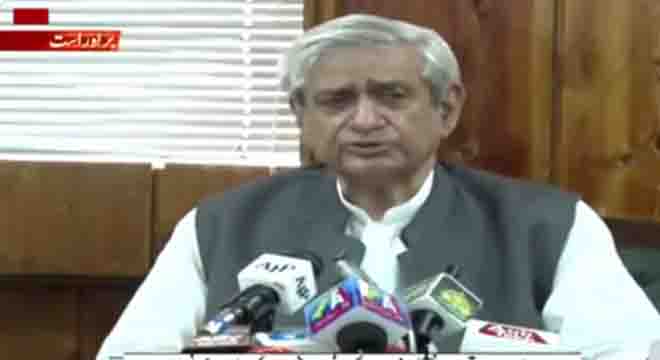ISLAMABAD, Minister for National Food Security and Research Syed Fakhar Imam Friday said that Russia has lifted ban on the import of rice from Pakistan that would help in significant increase of local rice exports to Russian markets as well as penetrating in other high end markets.
Addressing a press conference, he said that the Russian authorities had imposed ban on Pakistani rice two years back after intersecting khapra beetle insect in some consignments reached to its markets.
After the imposition of ban, the local authorities initiated negotiation with Russian authorities and several delegation from Moscow visited Pakistan in order to examine and observe the standard operating procedures and measures for fulfilling the phytosanitary standards, he added.
The Minister said that Department of Plant Protection and Plant Quarantine Division, Ministry of Commerce in close coordination with Trade Minister of Embassy of Pakistan in Moscow, played vital role for the resumption of local rice exports to Russian markets that was commendable.
Initially, four local companies were allowed to export rice to Russia, however a delegation was scheduled to visit Moscow to explore more opportunities for the companies meeting the set standards to enhance exports of rice to Russia, he added.
Fakhar Imam said that Pakistan has harvested bumper rice crop over 8.4 million tons, adding that the resumption of rice exports to Russian markets would help in fetching additional $200 to $ 300 million each year, which he said would benefit the local growers.
He said that the Prime Minister was keen in enhancing local exports of agriculture products by promoting value addition of these products through mechanization, innovation and making progress in research and development to meet international standards.
In order to promote the local agriculture sector, he said that the government was determined to bring the agro-economy in main esteem, which would equally benefit the growers and general public, adding that agriculture was back bone of the national economy and major source of industrial raw material and absorb huge chunk of labor.
He told that the government was working with international development partners to control pest and to meet the set standards for enhancing exports to high end markets, adding that a comprehensive campaign was launched against locust.
The agriculture growth was directly linked with over 8.94 million farm families, he said and added that the government had introduced measures to protect them through Kissan Card and others to ensure development and prosperity of farming communities.
The government was focusing on vertical development of agriculture sector, which was including technology development, research for bringing the local produces at par with international standards to present them in those markets, he remarked.
Follow the PNI Facebook page for the latest news and updates.









